In recent weeks, you may have seen a television ad that indicates Michigan is in a very precarious position in the area of future power supply. For some utilities in our state that may be true and those ads cast a very ominous cloud over Michigan and what could happen.
However, I want to share with you how Cherryland Electric Cooperative (CEC), and its power supplier, Wolverine Power Cooperative (Wolverine), ARE investing for the future power supply needs of our members. Furthermore, I want to provide you some details on who is behind those rather gloomy television advertisements and what they hope to achieve.
First, I want to point out that CEC and Wolverine are currently investing approximately $140 million in the development and construction of the Alpine Power Plant near Gaylord. This 430-megawatt natural gas fired power plant, which will become operational next year, will meet the future electric capacity needs of CEC and four of our fellow electric cooperatives well into the future. We are proactively working hard to meet your future electric needs.
Now, let’s talk about those ads that you frequently see during the 6 o’clock news on your local stations. Those ads are the work of one of our state’s largest public relations firms in conjunction with Detroit Edison and Consumers Energy—Michigan’s two largest electric utilities.
Their multi-million advertising campaign has one very simple goal—to eliminate electric competition in Michigan. It is our understanding that they are spending $2-3 million on those ads in an effort to enact changes in state law by raising the doubts and fear of electric consumers and our elected officials in Lansing.
Michigan law, enacted in 2008, allows 10% of an electric utility’s customers to choose another supplier. Michigan’s electric cooperatives believe that the threat of 10% of our sales base leaving us for another supplier has made us more attentive to member needs and competitive pressures.
In fact, I am proud to point out that CEC has NEVER lost a member to another supplier—even though our two largest members have had that option since 2000. We believe that competitive rates and high quality service are the reason our large members have chosen to stay with CEC.
The big utilities in our state, in conjunction with their Lansing public relations firm, are attempting to use those scare tactics to change state law and eliminate competitive options for their large customers. They say they need greater assurance that their customers won’t leave for other suppliers before they can build additional generating plants. They said the same thing in 2008 when state legislators reduced their risk by capping the market at 10%.
In the end, we have an obligation to serve your needs affordably and we take that obligation seriously.



Thank-you for the information. We have appreciated Cherryland Service for many years. We have no plans to change that.
I have been a Cherryland Electric member for 17 years. I have a friend who is a Consumer customer, and lives about 5 miles from me. She has had so many long term outages over the years she purchased a big generator that starts automatically when the power goes out. I have yet to have a long term outage….the longest was about 3 hours a few years ago. Occasionally I have to reset my appliance clocks, and the elapsed time for the blink is measured in seconds…
No way would I change to Consumers….
Thanks for the information on “Electric customer choice “.
Sign me up. I would like to buy my electric on the open market. As I do natural gas. I have saved thousands. Cle will need to become more competitive…
Thanks for that explanation. I was sure that those ads were simply scare tactics but it’s good to know who is behind them a and why.
I didn’t know I could shop around. Thank you for informing me that I can. How about net metering? Is CEC one of the companies lobbying the state to get rid of net metering? I hope not. I plan on having solar power in a few years. In fact, I see no reason why a person like myself shouldn’t be able to provide CEC with enough energy to supply my neighbors with clean energy when our utilities are at peak demand. I have 5 acres that I would love to put solar and wind on and get a little retirement income from we I am older.
CEC is not one of the companies lobbying for the end of net metering. As a member regulated cooperative, CEC does not HAVE to provide net metering but we still do. However, we are looking at possible changes. When we pay the full cost of retail for a product we normally buy for 37% less other members are forced to subsidize the net metering member. As the number of net metering members grows, the subsidy grows. Thus, at some point in the future, we will need to change. The Cherryland peak is typically from 5-8 pm each evening. If you can get a significant amount of wind or solar to produce during that time period, we can talk. Thanks for your comments and interest in this topic. – Tony Anderson
Thank you for the update. I appreciate the information regarding the advertising. We are quite pleased with Cherrylands service.
Thank you for posting this explanation. I’ve been a member of Cherryland Electric since 1986, and the service has been fantastic with affordable rates and a sense of community responsibility that makes me most proud.
Thanks for the great article to help enlighten me. I appreciate this very Much! CEC is a great company.
customer service is lacking/ you schedule a payment and that is not good enough. OMG C:EC is a problem most expensive rates they can get away with. I am filing a complaint with the MPSC. I want to change to consumers or someone else